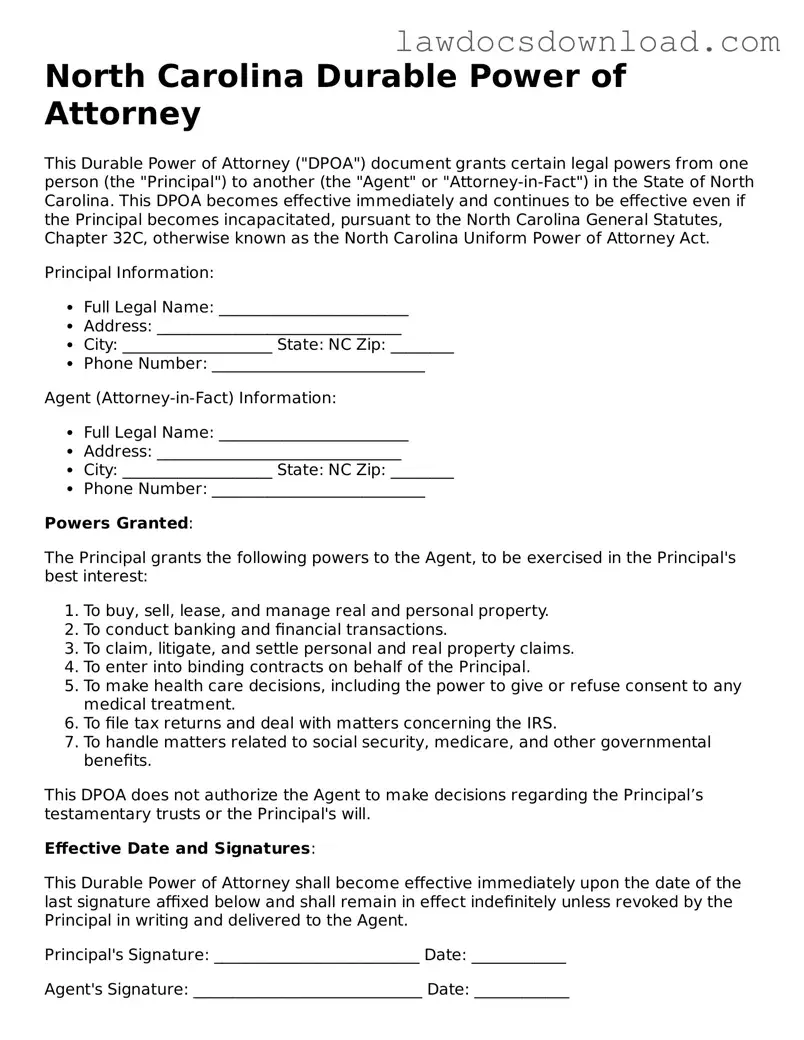Legal North Carolina Durable Power of Attorney Form
The North Carolina Durable Power of Attorney form is a legal document that grants a person the authority to act on another's behalf in financial matters, even if the grantor becomes incapacitated. This capability makes it a crucial tool for estate planning and managing personal affairs, ensuring that decisions about one’s finances can be made by a trusted individual if they are unable to do so themselves. It is designed to offer peace of mind, knowing that financial matters will be handled according to the grantor's wishes, regardless of their health status.
Launch Durable Power of Attorney Editor Here

Legal North Carolina Durable Power of Attorney Form
Launch Durable Power of Attorney Editor Here

Launch Durable Power of Attorney Editor Here
or
Free Durable Power of Attorney
Get this form done in minutes
Complete your Durable Power of Attorney online and download the final PDF.